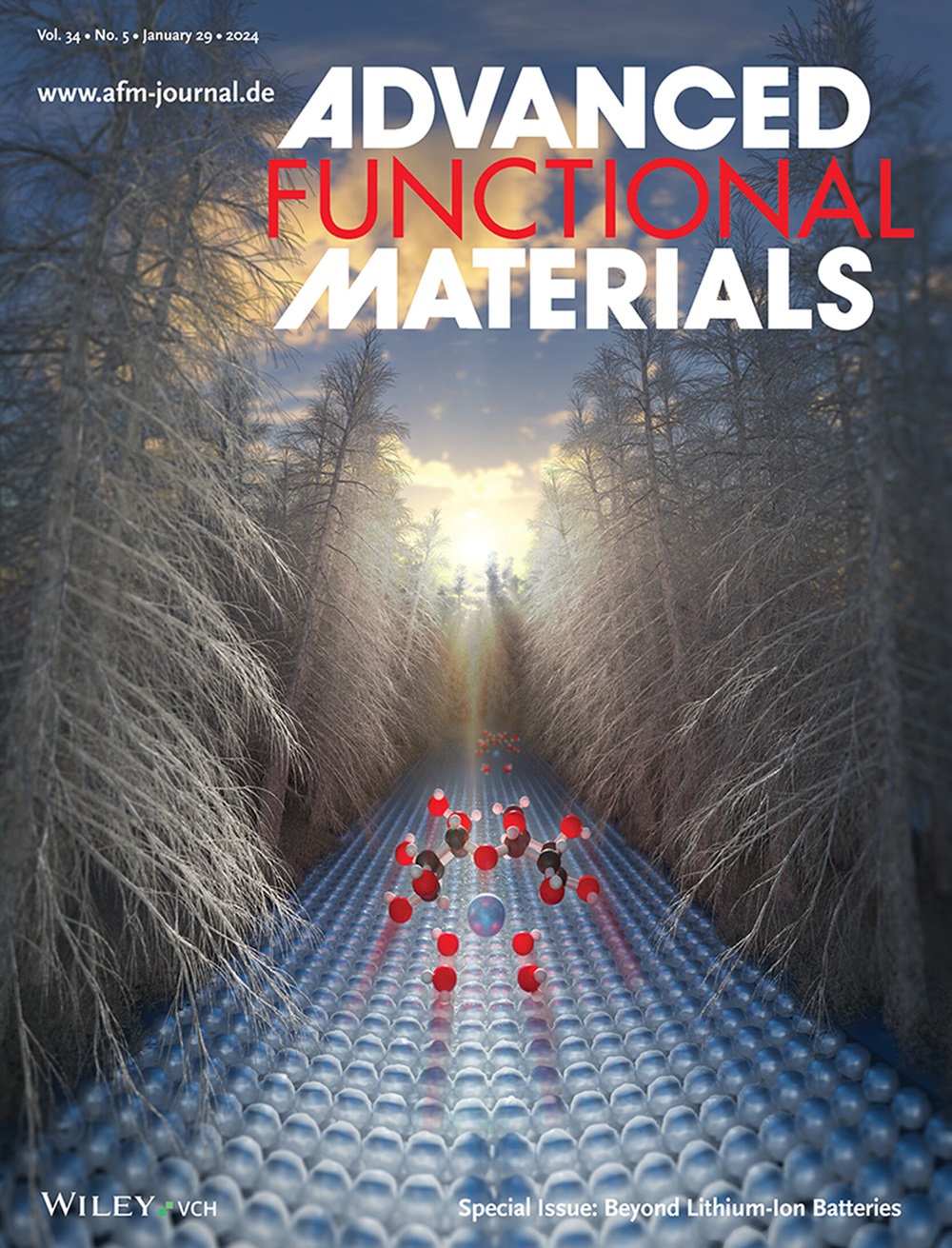Antimony Trifluoride-Engineered Hybrid Artificial Interphase Enable Dendrite-Free Potassium Metal Batteries
IF 18.5
1区 材料科学
Q1 CHEMISTRY, MULTIDISCIPLINARY
引用次数: 0
Abstract
Potassium metal batteries (PMBs) have attracted widespread attention due to high theoretical specific capacity and abundant reserves. However, their further development is constrained by challenges including inhomogeneous deposition and unstable interfaces. Herein, an inorganic/organic hybrid layer (IOHL) comprising KF/Sb and organic polymers PDOL is in situ formed on the K metal surface to synergistically enhance the rapid transport of K+ within the SEI and improve the stability of the SEI. Specifically, Sb and K3Sb function as ion-conductive and electron-regulating phases, facilitating rapid K⁺ transport and balanced electron redistribution. The KF component, with its superior electron-blocking properties, effectively minimizes electron tunneling from the metallic K anode into the electrolyte. Meanwhile, the PDOL polymer provides mechanical elasticity to buffer the volume changes during deposition and stripping. As a result, a uniform and dendrite-free interface is obtained. The assembled symmetric cells exhibit stable cycling performance for 2100 h in carbonate ester-based electrolytes, with a voltage hysteresis of only 100 mV at 0.5 mA cm−2/0.5mAh cm−2. Full cells incorporating perylene-3,4,9,10-tetracarboxylic dianhydride cathode demonstrate an boosted long cycle life and superior rate capability. This work provides valuable insights into developing simple yet effective strategies for constructing a highly stable multifunctional hybrid artificial interphase for PMBs.

三氟化锑工程混合人工界面使能无枝晶金属钾电池
金属钾电池因其较高的理论比容量和丰富的储量而受到广泛关注。然而,它们的进一步发展受到不均匀沉积和不稳定界面等挑战的制约。在K金属表面原位形成由KF/Sb和有机聚合物PDOL组成的无机/有机杂化层(IOHL),协同增强了K+在SEI内部的快速传输,提高了SEI的稳定性。具体来说,Sb和K3Sb作为离子导电相和电子调节相,促进K +快速传输和平衡电子再分布。KF组件具有优异的电子阻挡性能,有效地减少了电子从金属K阳极进入电解质的隧穿。同时,PDOL聚合物提供机械弹性,以缓冲沉积和剥离过程中的体积变化。得到了均匀且无枝晶的界面。组装的对称电池在碳酸酯基电解质中表现出2100 h的稳定循环性能,在0.5mA cm−2/0.5 mah cm−2时电压滞后仅为100 mV。采用苝-3,4,9,10-四羧酸二酐阴极的全电池显示出较长的循环寿命和优越的倍率能力。这项工作为开发简单而有效的策略来构建高度稳定的多功能混合人工间相PMBs提供了有价值的见解。
本文章由计算机程序翻译,如有差异,请以英文原文为准。
求助全文
约1分钟内获得全文
求助全文
来源期刊

Advanced Functional Materials
工程技术-材料科学:综合
CiteScore
29.50
自引率
4.20%
发文量
2086
审稿时长
2.1 months
期刊介绍:
Firmly established as a top-tier materials science journal, Advanced Functional Materials reports breakthrough research in all aspects of materials science, including nanotechnology, chemistry, physics, and biology every week.
Advanced Functional Materials is known for its rapid and fair peer review, quality content, and high impact, making it the first choice of the international materials science community.
 求助内容:
求助内容: 应助结果提醒方式:
应助结果提醒方式:


